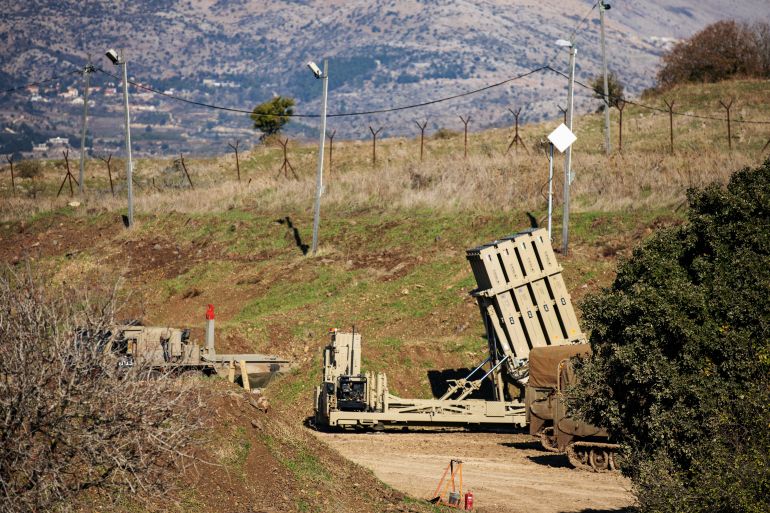Shooting in Syria could mark new phase in Israeli campaign
Syria’s state-run news agency says Midhat Saleh was fatally shot by a sniper in Ein el-Tinneh, a village along the Israeli frontier in the Golan Heights.

The death of a former Syrian Druze lawmaker, allegedly by Israeli sniper fire, could mark a new phase in what Israel calls its war against Iranian entrenchment in neighbouring Syria.
Midhat Saleh was fatally shot on Saturday in Ein el-Tinneh, a village along the Israeli frontier in the occupied Golan Heights where he ran a government office, Syria’s state-run news agency said.
Keep reading
list of 4 itemsMike Pompeo makes first visit by US top diplomat to Golan Heights
As Erdogan set for another tour, Turkey deepens ties with Africa
Syrian military chief makes rare visit to Jordan
Israeli media reported Saleh had been assisting the Iranian military against Israel.
The Israeli military declined to comment, but if Saleh was indeed killed by Israel, it would mark the first time that Israeli snipers are known to have killed someone identified as an Iranian-linked target across the boundary.
Israel has said it will not tolerate a permanent Iranian military presence in Syria and has acknowledged carrying out scores of air attacks on alleged Iranian arms shipments and military targets in Syria in recent years.
Israel captured the Golan Heights from Syria in the 1967 Middle East war and later annexed the strategic territory, which overlooks northern Israel.
Most of the world does not recognise the annexation, though the administration of former US President Donald Trump declared the territory to be part of Israel.
Saleh was born in Majdal Shams, in the Israeli-controlled side of the Golan, and was jailed several times by Israel, most recently for 12 years until 1997.
He later moved to Syria, was elected to parliament in 1998, and served as an adviser to the government on the Golan issue.
The small Druze community living in the Israeli-controlled side of the Golan generally has good relations with Israel.
But many members still profess loyalty to Syria, in part because they have relatives on the other side.
Saleh’s loyalty
Samih Ayoub, a resident on the Israeli side of the Golan, told Israel’s Army Radio station Saleh had “no connection” to Iran or to any militia operating in the area.
“He’s just a quiet man who works in an office. They killed him next to his house,” said Ayoub.
Saleh’s brother, Yasser Saleh, a doctor in Damascus, said his brother also lived in the Syrian capital but visited the border area periodically, slept there and sometimes spoke with relatives across the frontier.
He said his younger brother had survived an earlier assassination attempt in early 2011 and remained committed to ending Israel’s control over the Golan Heights until the end.
He said his brother was survived by a wife and two children, including a son named Golan.
Message to Iran
While there was no official comment, Israeli military commentators — who are given high-level background briefings with top army brass — said Saleh was intimately involved in assisting the Iranians build up their capabilities along the Israeli front.
Iran has sent thousands of forces to Syria to back the army of President Bashar al-Assad during the country’s decade-long civil war.
“He answered directly to the Iranians,” wrote Yossi Yehoshua, a military correspondent for Yediot Ahronot, Israel’s largest paid daily newspaper.
Giora Eiland, a former Israeli national security adviser, told Army Radio that if Israel killed Saleh, it was meant to send a message to the Iranians and not connected to the past.
“I assume this was not an act of revenge,” he said. “We’re not talking about a mass murderer.”
Yoel Guzansky, a senior fellow and expert on Iran at the Institute for National Security Studies, a Tel Aviv-based think-tank, said it was not a sure thing that Israel had even been involved.
He said Saleh was not an especially valuable target and also had tense relations with Iranian proxy Hezbollah and objected to the group’s activities in the Golan.
But he said if Israel did indeed kill Saleh through an unprecedented sniper attack, it sent a powerful message to Iran and Syria about their activities near the Israeli border.
“It says that we have many ways and many techniques,” he said. “We’re watching you.”